October 2022: Olive Tree

Volume VII/Issue 7/October 2022


From The Editorial Desk
What Next?
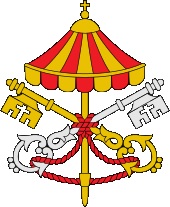
An Open Letter to Concerned Catholics; Friends and Benefactors of The Vatican in Exile; those who followed Pope Michael I.
The Holy Father, Michael I, passed into eternity on August 2, 2022, and the Church is now in a period of “sede vacante”. Father Francis Dominic now serves as Camerlengo - he is the chief in conducting the normal business of the Church after the death of the Pope. He conducted the burial of His Holiness, and he is also charged with the preparation of a new papal election. I have witnessed the close relationship between Father Francis and the late Holy Father over a number of years. It was also my privilege to serve at various Masses offered by His Holiness, Michael I. Although His Holiness left no explicit instructions at to what the process of papal selection would be in the future, nor did he leave specific instructions as to who should be the next Pontiff – I can attest that no one knew the mind of Pope Michael in these important matters more than the Camerlengo – Father Francis Dominic. Father Francis has been deluged by numerous well-intended recommendations of how to proceed with a papal conclave – and many of these suggestions have a decided proclivity to conduct the process -whatever it may be- immediately, or sooner than later.
For those who were followers of our late Holy Father I would point out that He held the position that there was a considerable interregnum between the death of Pope Pius XII in 1958 and the election of Himself in 1990 – a period spanning some 32 years! When one scans the historical sede vacante periods before Pius XII it will be noted that there were at least four periods which lasted over two years, and many more lasting months before a Pope was selected. Considering that there was even established election procedures during much of these periods it is astounding to note how long and how many times The Church was without Peter. I note these things only to convince those, who with good intention are anxious to see the Papal Chair filled again, to step back a little and to wait until Our Lord sets the stage and rules for the selection of the next Pope.
It is a matter of Catholic Faith to believe in the necessity of a Pope. Indeed, Our Lord Jesus Christ who is the Head of the Church – the Head of the Mystical Body – instructed His Church to have a Vicar. This Vicar would be a man who would be the visible leader of the Church on earth until the time when the invisible head returns.
“And I say to thee: thou art Peter; and upon this rock I will build my church, and the gates of hell shall not prevail against it.” (St. Matthew 16:18)
Peter was given this authority because of the expression of his faith- “Blessed art thou, Simon Bar-Jona: because flesh and blood hath not revealed it to thee, but my Father who is in heaven.” (Matthew 16:17) Faith is the indispensable predicate for a Pope. The Pope must first have the Catholic Faith. Our Lord meant for there to be a vital connection between Authority and The Faith – they would be as One in His Vicar on earth. And so, it was with his Holiness Michael I. If there is any lesson from the election of our Holy Father, Michael, it is that the “process or procedure” of election or selection is not a frozen one meant for all times. Indeed, when one looks at the early Church; From Peter to Linus through to Clement, the early Popes were selected by their predecessors. On through the first millennium of the Church His Vicars were selected by a number of means: appointments by the aristocracy, by Emperors, then by a mixture of clergy and laypeople. It was not until Emperor Henry IV, the Holy Roman Emperor who allowed Pope Nicholas II (1059–61) to promulgate In Nomine Domini in 1059, that ensured that all future elections and, eventually, conclaves, would conform to a basic procedure that has remained largely unchanged for almost a millennium. But these are not dogmatic procedures and might not be suited for a time of great apostacy.
The point to remember is that His Holiness, Michael, believed that the process that existed after the death of Pius XII, was one that could not select a valid Pope – a new process and procedures had to be given in order to select a Vicar who had both The Faith and Authority to be the visible head of Christ’s Church. What that process will be is being discussed among the Clergy and Laypeople affiliated with His Holiness, Michael I. I am sure that Father Francis welcomes all suggestions and comments from those motivated by a love for Christ’s Church. I am also sure that an appreciation of the importance and magnitude of a Papal Conclave will be exhibited by all those who are communicating with Father.
Always remember, Christ is the Head of the Mystical Body although there may be a time when there is no visible head - Vicar. All Catholics should believe in the Papacy, and they should also believe that the Church can exist for a time without a Vicar – this is simply an historical truth as well as a Theological Truth. The Church is indestructible and though it may appear to be in a dark time and there is no leader on the horizon we must have the Faith and believe that Our Lord – in His good time- will reveal to us in whatever way and manner He wills - what is next.
“...they that wait upon the Lord will renew their strength. They will soar on wings like eagles; they will run and not be weary, they will walk and not be faint” (Isaiah 40:31).
In Christ 
Brother Stephen, September 30, 2022

The Battlefield is NOT the Mind
Everywhere you turn, people are talking about the battle over the mind. Truthfully, it isn't the mind where the battle begins for the Christian. That is a semi-Buddhist philosophy, and it is true for someone who is not a Christian. However, for a believer, it is not the mind where the battle takes place. Don't misunderstand me. I believe the mind is critical. However, the mind does not create the most significant problems for God’s people. So if the battle is not in the mind, where is it? The battle for the mind in a child of God is in the body.
Romans 12 tells us that we are to present our bodies as a living sacrifice, Holy and acceptable to God. When our bodies are submitted, our minds are transformed by the Holy Spirit. When a person is a true Christian, they try to change their life by changing their mind. The only change of mind we are to do is repentance, which leads us to three conclusions.
-
I am not my own.
-
I was bought with a price.
-
I am to glorify God in my body.
Heretofore we live to satisfy our flesh, but when we repent, we change our minds to acknowledge these three principles. That is the only work of the mind over which we have any control. The mind’s control is the work of the Holy Spirit for the believer. Once we have submitted our bodies, The Holy Spirit begins the work of transformation. Our battle is our body or our flesh. Paul spoke of this fact numerous times as he spoke about dying daily, buffeting his body, not living in the flesh, and other examples where he referred to bringing his body under submission, not his mind. Let me give you an example.
All decisions begin with the flesh. If I decide that I'm going to stop eating junk food, my mind does not automatically quit wanting junk food. If I submit my flesh to refrain from eating that food, my mind will eventually be convinced of the benefits that have taken place. I don't fill my mind with transforming thoughts so that I'll quit eating junk food. I quit eating junk food, and then my mind is transformed. I repented over the fact that junk food is bad for me, but that did not make my mind hate junk food. Mind over matter is psychological, not spiritual. It is possible someone can mentally change, but that is not a transformation from within. Spiritual transformation can only occur through the Holy Spirit's work, not our own mental determination.
I am not my own. Therefore, I am to glorify God in my body. The body's submission is the beginning of the transformation of the mind. People who cannot win the battle of the mind are fighting the battle themselves. The battle of the mind is one by the Holy Spirit when we have committed our bodies to Christ. The person with an impure mind must submit their bodies to God. In that submission of their body, the spirit of God begins the work of transformation of the mind. Paul spoke of himself as having victory in his mind but a battle with the flesh. Truly our minds often say that we will submit ourselves to God, but our bodies fight us. When we submit the body to the Holy Spirit, the transforming of the mind takes place.
That is why it's so important that our bodies are under submission. It is not just the words of a song that affect our minds, but the way the song affects our bodies. It is not just a book's message in our minds that is the problem, but the temptation within our bodies. The lust of the flesh is the first that is mentioned, and it is the one that causes us the most problems. Most people sin because their bodies have never truly been sacrificed to God. Paul says I die daily. That is, he's crucifying the flesh with its affections and lusts. The Holy Spirit is within us to control our minds, but we must submit our bodies.
The Bible says as a man thinks in his heart, so is he. However, the beginning of the pure heart is the presentation of our bodies as a sacrifice to God. We are to deny ourselves so that God can take control of our minds. Jesus said if any man will come after me, let him deny himself. There you find the denial of the flesh. If you read your Bible carefully, you will find that it is the commitment and the surrender of our bodies or the crucifixion of our flesh for the denial of our lusts that proves our commitment to Christ. Once we have done this, the Holy Spirit begins the work of transformation in our minds, which gives us an even greater victory over sin in our lives. Just filling our minds with all good thoughts will not overcome the flesh. Only when we put our flesh on the altar and sacrifice it to our Lord can we truly have victory in our minds.
The purpose of transformation in the mind is not to give us victory over the flesh, however. Victory in the mind is to give us direction to accomplish the will of God in our lives. You see, it is a step-by-step process that begins with surrendering the body and transforming the mind so that we can know to do the will of God. We think this victory of the mind is to give us a victory over sin, whereas it is stated that it is given to us so that we might know and do the will of God.
To have a transformed mind to accomplish our physical victory is selfish. However, to have a transformed mind so that we might do God's will and know God's will is unselfish. When we teach our children to have a pure mind, we are not saying something wrong, but we must also teach them how to consecrate their bodies to Christ. Denying ourselves is a pivotal part of doing the will of God because, until we submit ourselves to Him, our minds will not be transformed to do that well.
 Notes on One World Religion
Notes on One World Religion
The Abrahamic Center is now placed in Abu Dhabi, United Kingdom Emirates. This center now has three edifices : The Temple for Judaism, Islamic mosque, and a Christian Church. I'm not sure if it's just for Catholics or for other non-catholic denominations. But one thing is sure, It is for a One World Religion.
Fraternity is not evil at all, In as much as we are divided Christendom and divided humanity. We are like the Tower of Babel wounded by pride which is a by product of sin. And needs to be healed by unity. Religious leaders should serve as a hinge which will serve as a bridge between people separated by mountains and rivers. Yet, though it seems to be beautiful outside, it is difficult to live. More so because there might be important elements of faith which can't be sacrificed.
In the last World Congress of Religion held in Khazakstan, the Lord Jesus Christ was set aside. Man becomes now a way to all religions. But for us, Jesus Christ is "the way, the truth and the life. No one comes to the Father except through me." ( John 14:6 ). For us Outside Jesus Christ there is no Salvation. For us Outside the Church there is no Salvation. Extra Ecclesiiam Nulla Salus. These tenets of our faith should not be set aside in the name of fraternity with other religions.
The Jews are still clinging to the belief that there's one God ( monotheism). Yet Jesus Christ, for them , is not the Messiah. For them, Jesus Christ is not God. But for us, Jesus Christ is God, the second person of the Holy Trinity. Islamic Religion holds that there's one God, Allah, and they do not accept our Trinity. For Islam, Jesus Christ is just a prophet not God. Why is it that these major religions do not put aside their principles? Yet, when it comes to Catholicism as represented by Anti-Pope Francis in that congress there's no mentioning of Jesus Christ?
When the regulations of this One World Religion is in full implementation, time will come when the crucifix will be removed, crosses will be banned, catholic icons shall be destroyed, Holy Mass shall be considered unlawful, all in the name of respect to other religions and all due to fraternity. Fraternity is not evil at all. But removing Jesus Christ as the savior and king of the Universe is evil.
Christus Vincit, Christus Ragnat, Christus Imperat! Let this be our continous song, a song of triumph of our One, Holy, Catholic and Apostolic Church. Prepare to be a Martyr. Prepare our young people to be martyrs. Ad maiorem Dei gloriam.

Spotlight On Our Arch Bishop! 
Most Reverend Rogelio Del Rosario Martinez Jr. was born in Manila Philippines on October 31st 1970. His parents are Rogelio Martinez Sr. and Concepcion Del Rosario. Both are deceased. His siblings are Rosa Maria Martinez Clemente and Ricardo Martinez. Both professionals.
Martinez was baptized Roman Catholic on December 6, 1970. Entered the Seminary after graduation from high school in 1987 at the Immaculate Conception Major Seminary in Guiguinto, Bulacan. From there he finished his Bachelor of Arts in Philosophy ( 1992 ) and Theology ( 1997) with Master of Arts in Pastoral Ministry. Became a College Instructor after graduation in Theology at Centro Escolar University ( 1997-2016). Teaching Philosophy and Religion.
Married to Ma. Linda Jacinto in 1999 and was blessed with a son, Rogelio III.
Martinez enrolled in the College of Law in 2000 and graduated in 2004 at Harvardian Colleges, San Fernando, Pampanga.
By the grace of God, Martinez was ordained deacon on December 7, 2002 and ordained priest on April 12,2003 by Bishop Joseph V. Galaroza, CSC, D. D., Primate of ICAB. (Brazilian Catholic Church) . It's Apostolic Succession can be traced to Bishop Carlos Duarte Costa.
Martinez became parish priest at Our Lady of Fatima Parish Church at San Jose Del Monte City in 2004. He was ordained bishop by His Excellency Archbishop Joel Clemente and Bishop Heyward Ewart at St. Andrew's Seminary, Quezon City February 6, 2010 . It's Apostolic line was also from Duarte Costa. When Martinez became a bishop, together with his priests, his primary vision was to be reconciled with the Pope in as much as ICAB is in schism. To help him with this intention, he was subcondtionally ordained bishop by Archbishop Neville Anderson and bishop Redpath and Bishop Nield as co-consecrators. But Martinez later on discovered that the Roman Catholic Church in Vatican is not the True Catholic Church today but a Modernist sect. Hence, As a bishop with valid Apostolic Succession from the Roman Catholic Church, Martinez made a decree Motu Propio that his diocese would use the Tridentine Latin Mass to counter the abomination of Novus Ordo Missae and became sedevacantist.
Research at the internet led him to Pope Michael in 2017. After several exchange of communication, In 2020 His Holiness, Pope Michael, accepted Martinez and reconciled him to the Catholic Church. Pope Michael subsequently appointed Martinez as Archbishop of San Jose Del Monte in the Philippines, February 14, 2020.
Note Worthy News
Missouri School District Brings Back Paddling
A Missouri school district is bringing back paddling for naughty students after parents said they’d prefer alternate punishments to school suspensions.
Administrators in the Cassville School District told KOLR-TV that corporal punishment would be a last resort for parents and faculty members when other disciplinary measures fail....
The school district will not spank any child unless the child’s parents give their consent.
Kansas Teacher to Receive $95,000 From District That Disciplined Her for Refusing to Use Preferred Pronouns
A former Kansas middle school math teacher will soon receive a settlement of nearly $100,000 after a school district attempted to force her to violate her religious beliefs and call students by their preferred names and pronouns—and then withhold those same preferred names and pronouns from parents.
Pamela Ricard, 58, sued Geary School District...after she was disciplined in March 2021 for refusing to use male pronouns to refer to a biologically female student.
Ricard is a practicing Christian who believes that God creates human beings as either male or female and that gender is a fixed characteristic determined at conception, the lawsuit argued. Therefore, asking her to address the female student as a male “actively violated her religious beliefs.”
Christian School Administrator Defends Institution’s Policies of Referring to Students by Biological Gender, Denying LGBTQ Students
A private Christian school in Florida reminded parents that students will only be referred to by their biological gender. The school also informed parents that students participating in LGBTQ lifestyles would be asked to leave. The school’s administrator has fired back at critics who have questioned the policies of the institution.
...The Grace Christian School in Valrico...sent out an email to parents with the subject line: “Important School Policy Point of Emphasis....”
“We believe that God created mankind in His image: male (man) and female (woman), sexually different but with equal dignity,” the email stated, according to NBC News.
“Therefore, one’s biological sex must be affirmed and no attempts should be made to physically change, alter or disagree with one’s biological gender—including, but not limited to, elective sex reassignment, transvestite, transgender, or nonbinary gender fluid acts of conduct (Genesis 1:26–28),” read the email from Grace Christian School.
Scientific American Claims Western Science Made Up Two Sexes in Order to “Reinforce Gender and Racial Divisions”
Scientific American magazine was mocked and ridiculed over bizarre claims it made about binary sex roles in Western science in a series of tweets.
The claims were a part of a Twitter thread attempting to recast the binary sexual identities in order to fit the transgender agenda.
“Before the late 18th century, Western science recognized only one sex—the male—and considered the female body an inferior version of it. The shift historians call the ‘two-sex model’ served mainly to reinforce gender and racial divisions by tying social status to the body,” read the sixth tweet in the series of seven....
Critics of the claim lined up on social media to cast scorn on the science magazine and make their arguments....
“...People are still free to read books from the middle ages and earlier, and see how blatantly false all their claims are. Idea that ‘two- sex model’ served for ‘racial division’ should be stand-up comedy,” replied Maxim Lott, producer for John Stossel.
“The hijacking of science to parrot pure and absolute nonsense is just amazing,” responded Ben Shapiro....
“History will laugh at this ridiculous period in time where half the people created a fantasy world for themselves....,” read another tweet. Many critics pointed out that the Bible clearly set out the binary sexual system long before the 18th century.
The Funny Pharmacy
A joyful mind maketh age flourishing: a sorrowful spirit drieth up the bones. - Proverbs 17:22

Frequently Asked Questions

Only God can see the heart. Who are we to judge Catholics?
When Jesus talks about judging others, he says, "Judge not, that you may not be judged, For with what judgment you judge, you shall be judged: and with what measure you mete, it shall be measured to you again. And why seest thou the mote that is in thy brother's eye; and seest not the beam that is in thy own eye?" (Matthew 7:1-3)
Jesus then immediately says, "Thou hypocrite, cast out first the beam in thy own eye, and then shalt thou see to cast out the mote out of thy brother's eye." (Matthew 7:5)
So we see here that Jesus is actually not saying to not judge, but instead he is saying to not be hypocritical. He is criticizing those who point out other people's sins, yet sin themselves.
Jesus then immediately says in the next verse, "Give not that which is holy to dogs; neither cast ye your pearls before swine, lest perhaps they trample them under their feet, and turning upon you, they tear you." (Matthew 7:6)
In order to decide who are "dogs" or "pigs" a judgment has to be made. This statement is clearly a metaphor, but nevertheless Jesus is instructing us to make a decision about who is not worthy of what is holy.
Jesus also calls this: "By their fruits you will know them." (Matthew 7:16) He makes this statement is the same chapter, just a few verses later.
Here, in Matthew 7:16, Jesus is talking about false prophets, but again a judgment has to be made. Not only is Jesus NOT saying to not judge, he actually is telling us to judge others based on their actions.
Why? Because our actions reveal the truth about us. Someone can say, "I'm not a killer," but if they kill someone, their actions have proven them wrong. Someone can say, "I'm not a thief," but if they steal, then their actions have proven them wrong. Someone can say, "I have repented," but if they continue in that sin, then they have not repented.
So the idea that we are to "not judge" others is an incorrect teaching.
However, there are two types of judging.
There is objective judgment of "Calling it what it is" and there is subjective judgment of looking down on people and viewing them as less than you because of what they do. Objective judgments are non-sinful, and we see Saint Paul doing it in the Bible as well. However, subjective, arrogant, prideful, belittling judgments are obviously sinful, as the bible repeatedly speaks against arrogance, pride, and belittling others.
Paul on Judging Fellow Believers
Sin is sin. If a believer is committing sin, and they claim to be a Christian, Paul says to not fellowship or socialize with such a person.
"But now I have written to you, not to keep company, if any man that is named a brother, be a fornicator, or covetous, or a server of idols, or a railer, or a drunkard, or an extortioner: with such a one, not so much as to eat." (1 Corinthians 5:11)
Paul even bluntly states that he judges a man who sins, saying, "I indeed, absent in body, but present in spirit, have already judged, as though I were present, him that hath so done, this thing." (1 Corinthians 5:3)
This is appropriate judging. Paul is not being hypocritical by also sinning, and he is objectively calling it what it is: sin.
This kind of judging is exactly what Jesus talks about in Matthew 18, saying, "But if thy brother shall offend against thee, go, and rebuke him between thee and him alone. If he shall hear thee, thou shalt gain thy brother. And if he will not hear thee, take with thee one or two more: that in the mouth of two or three witnesses every word may stand. And if he will not hear them: tell the church. And if he will not hear the church, let him be to thee as the heathen and publican." (Matthew 18:15-17)
Both Jesus and Paul say to refuse those who claim to be Christian, but are sinners as seen by their actions. Why? Paul explains, "Don't be deceived! 'Evil companionships corrupt good morals.'" (1 Corinthians 15:33)
Paul further says, speaking about believers who sin, "Them that sin reprove before all: that the rest also may have fear." (1 Timothy 5:20)
These are the words of Jesus Christ and the Apostle Paul.
For answers to more frequently asked questions, click here: https://www.vaticaninexile.com/frequently_asked_questions.php
The Pope Speaks: Pope Pius XI
Christ the King

Excerpted from the encyclical of Pope Pius XI, Quas Primas (11 December, 1925)
It has long been a common custom to give to Christ the metaphorical title of "King," because of the high degree of perfection whereby he excels all creatures. So he is said to reign "in the hearts of men," both by reason of the keenness of his intellect and the extent of his knowledge, and also because he is very truth, and it is from him that truth must be obediently received by all mankind. He reigns, too, in the wills of men, for in him the human will was perfectly and entirely obedient to the Holy Will of God, and further by his grace and inspiration he so subjects our free-will as to incite us to the most noble endeavors. He is King of hearts, too, by reason of his "charity which exceedeth all knowledge." And his mercy and kindness which draw all men to him, for never has it been known, nor will it ever be, that man be loved so much and so universally as Jesus Christ. But if we ponder this matter more deeply, we cannot but see that the title and the power of King belongs to Christ as man in the strict and proper sense too. For it is only as man that he may be said to have received from the Father "power and glory and a kingdom," since the Word of God, as consubstantial with the Father, has all things in common with him, and therefore has necessarily supreme and absolute dominion over all things created.
Do we not read throughout the Scriptures that Christ is the King? He it is that shall come out of Jacob to rule, who has been set by the Father as king over Sion, his holy mount, and shall have the Gentiles for his inheritance, and the utmost parts of the earth for his possession. In the nuptial hymn, where the future King of Israel is hailed as a most rich and powerful monarch, we read: "Thy throne, O God, is for ever and ever; the scepter of thy kingdom is a scepter of righteousness." There are many similar passages, but there is one in which Christ is even more clearly indicated. Here it is foretold that his kingdom will have no limits, and will be enriched with justice and peace: "in his days shall justice spring up, and abundance of peace...And he shall rule from sea to sea, and from the river unto the ends of the earth."
The testimony of the Prophets is even more abundant. That of Isaias is well known: "For a child is born to us and a son is given to us, and the government is upon his shoulder, and his name shall be called Wonderful, Counselor, God the mighty, the Father of the world to come, the Prince of Peace. His empire shall be multiplied, and there shall be no end of peace. He shall sit upon the throne of David and upon his kingdom; to establish it and strengthen it with judgment and with justice, from henceforth and for ever." With Isaias the other Prophets are in agreement. So Jeremias foretells the "just seed" that shall rest from the house of David - the Son of David that shall reign as king, "and shall be wise, and shall execute judgment and justice in the earth." So, too, Daniel, who announces the kingdom that the God of heaven shall found, "that shall never be destroyed, and shall stand for ever." And again he says: "I beheld, therefore, in the vision of the night, and, lo! one like the son of man came with the clouds of heaven. And he came even to the Ancient of days: and they presented him before him. And he gave him power and glory and a kingdom: and all peoples, tribes, and tongues shall serve him. His power is an everlasting power that shall not be taken away, and his kingdom shall not be destroyed." The prophecy of Zachary concerning the merciful King "riding upon an ass and upon a colt the foal of an ass" entering Jerusalem as "the just and savior," amid the acclamations of the multitude, was recognized as fulfilled by the holy evangelists themselves.
This same doctrine of the Kingship of Christ which we have found in the Old Testament is even more clearly taught and confirmed in the New. The Archangel, announcing to the Virgin that she should bear a Son, says that "the Lord God shall give unto him the throne of David his father, and he shall reign in the house of Jacob for ever; and of his kingdom there shall be no end."
Moreover, Christ himself speaks of his own kingly authority: in his last discourse, speaking of the rewards and punishments that will be the eternal lot of the just and the damned; in his reply to the Roman magistrate, who asked him publicly whether he were a king or not; after his resurrection, when giving to his Apostles the mission of teaching and baptizing all nations, he took the opportunity to call himself king, confirming the title publicly, and solemnly proclaimed that all power was given him in heaven and on earth. These words can only be taken to indicate the greatness of his power, the infinite extent of his kingdom. What wonder, then, that he whom St. John calls the "prince of the kings of the earth" appears in the Apostle's vision of the future as he who "hath on his garment and on his thigh written 'King of kings and Lord of lords!'." It is Christ whom the Father "hath appointed heir of all things"; "for he must reign until at the end of the world he hath put all his enemies under the feet of God and the Father."
VIVAT CHRISTUS REX!


St. Francis de Sales' Introduction to the Devout Life
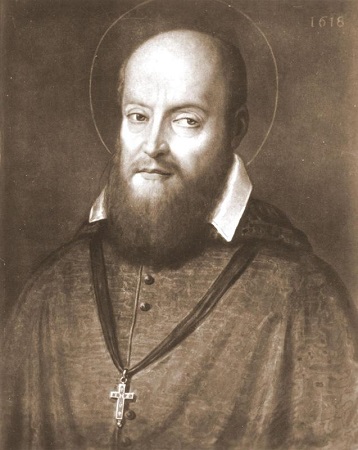
CHAPTER VIII
How to Effect This Second Purification
The first inducement to attain this second purification is a keen and lively apprehension of the great evils resulting from sin, by means of which we acquire a deep, hearty contrition. For just as contrition, (so far as it is real,) however slight, when joined to the virtue of the Sacraments, purges away sin; so, when it becomes strong and urgent, it purges away all the affections which cling around habits of sin. A moderate, slight hatred makes men dislike its object and avoid his society; but when a violent, mortal hatred exists, they not only abhor and shun the person who excites it, but they loathe him, they cannot endure the approach of his relations or connexions, nor even his likeness or anything that concerns him. Just so when a penitent only hates sin through a weakly although real contrition, he will resolve to avoid overt acts of sin; but when his contrition is strong and hearty, he will not merely abhor sin, but every affection, every link and tendency to sin. Therefore, my child, it behoves us to kindle our contrition and repentance as much as we possibly can, so that it may reach even to the very smallest appearance of sin. Thus it was that the Magdalen, when converted, so entirely lost all taste for her past sin and its pleasures, that she never again cast back one thought upon them; and David declared that he hated not only sin itself, but every path and way which led thereto. This it is which is that "renewing of the soul" which the same Prophet compares to the eagle's strength.
Now, in order to attain this fear and this contrition, you must use the following meditations carefully; for if you practise them stedfastly, they (by God's Grace) will root out both sin and its affections from your heart. It is to that end that I have prepared them: do you use them one after another, in the order in which they come, only taking one each day, and using that as early as possible, for the morning is the best time for all spiritual exercises;--and then you will ponder and ruminate it through the day. If you have not as yet been taught how to meditate, you will find instructions to that purpose in the Second Part.
Saints from East and West

October 29 - Saint Anastasia Of Rome, Virgin And Martyr.
The Monastic Martyress Anastasia the Roman in infancy lost her parents, and she was then taken under the care of the head of a women's monastery, named Sophia. The hegumeness raised Anastasia in fervent faith, in the fear of God and obedience.
During these times there began the persecution against Christians by the emperor Decius (249-251). The city administrator, Probus, on the orders of the emperor commanded that Anastasia be brought to him.
Having been blessed by her eldress-mentor for the deed of suffering for the Name of Christ, the young Martyress Anastasia humbly came out to meet the armed soldiers. Seeing her youth and beauty, Probus at first attempted by false flattery to tempt her and lead her into a renunciation of faith in Christ: "Why waste thy years, deprived of pleasure? What is there to gain in giving thyself over to tortures and death for the Crucified? Worship our gods, get thyself some handsome husband, and live in glory and honour."
The saint steadfastly replied: "My Bridegroom, my riches, my life, and my happiness is my Lord Jesus Christ, and with the threat of torments thou canst not part me from the Lord!"
Fiercesome tortures were then begun. The holy martyress bravely endured them, glorifying and praising the Lord. In anger the torturers cut out her tongue. The people, seeing the inhuman and disgusting treatment of the saint, became indignant, and the governor of the city was compelled to bring the torture to a close, by beheading the martyress.
The body of Saint Anastasia was thrown out beyond the city for devouring by wild animals, but the Lord did not permit that a mockery should be made with the holy remains. Learning of this through the Lord, the hegumeness Sophia found the torn body of the martyress, and with the help of two Christians she consigned it to earth.
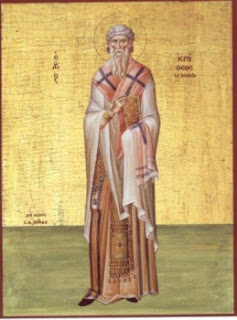
October 4 - Holy Hieromartyr Hierotheus Of Athens.
The Hieromartyr Hierotheos, Bishop of Athens, was a member of the Athenian Areopagia and was converted to Christ by the Apostle Paul together with Saint Dionysius the Areopagite.
The saint was consecrated by the Apostle Paul to the dignity of bishop. By tradition, Bishop Hierotheos was present together with Bishop Dionysios at the funeral of the Most Holy Mother of God.
Saint Hierotheos died a martyr's death in the first century.

Advice You Can Bank On
A Catholic Perspective On Finances
October 2022 – Saving on a Budget
A year ago, this month, we covered the topic of how to save money. The idea in that article was to show how important it is to pay off your debt before you can really start to save. This is especially important now, as inflation keeps rising, and the feds have increased interest rates at a faster pace than they ever have before. This not only effects mortgage rates, but credit card rates, and in a positive way, savings account rates.
If you have debt right now, it is very prudent to pay as much of it down as you can and as quickly as you can, as your interest rates are likely to climb, costing you more money each month on an already stretched budget. “The rich ruleth over the poor: and the borrower is servant to him that lendeth.” (Proverbs 22:7) We are reminded that we are called to be a servant to the Lord; not our debtors.
For those of us that have mortgages and other fixed rate loans, such as a car loans, those rates are going to stay the same. But for lines of credit and credit cards, expect to see a couple more increases to those rates before the end of the year.
In January of this year we discussed the breakdown of spending that we should attempt to attain, no matter what our income. The rule is 50/20/20/10; 50% for necessities, 20% for savings, 20% for wants, and 10% for God. Although only 20% of our budget, our “wants” category is the biggest area in which we can cut back to be able to save more. On the upside of the interest rats being raised is that high yield savings account interest rates are increasing as well. While this is not a way to get rich, it is a way to see your cash savings increase at higher rates than they were previously. Typically, it’s online banks that offer the higher rates than the brick and mortar banks.
One of the best ways to save money is to treat it as a monthly bill. Set an amount that you are comfortable with based on the percentages provided, and you will watch your savings grow over time. When considering your internet bill for example, it’s likely that it doesn’t change month over month. You are expected to pay it and have it included in your monthly budget. Think of your savings as the same way. If you cut back on discretionary spending, you can put that money towards saving as well. The way we look at it, while some areas of the financial world are in tumult, there are other areas where we can benefit, and this is one of them.
The biggest thing our family has done to cut back on our “wants” is to stop going out to eat. For a family of four, our last trip to Chipotle cost $60. We didn’t order drinks and didn’t order any extra sides. And forget about the bill if we talk about a sit-down restaurant. We realized in an instant how unsustainable this is. That money would have been much better off in savings, and our feeling of guilt for spending so much on laziness would be non-existent. And that’s the core of our deciding to going out to eat – laziness. One of us (usually me) doesn’t feel like cooking, or it’s late, or some other excuse. Those excuses and lack of planning that we talked about in January as well, end up costing us dearly. It’s a good wake up call that something as simple as cooking casseroles and saving them in the freezer for a later date could save us hundreds per month if we were to go out once per week instead.
Someone explained recently that an inflation rate of 13%, which is what Arizona is experiencing, is equated to another month and a half worth of expenses every year, no matter what your income. That’s alarming, and a really good way to put it. It really defines in simple terms the extra money that is going out the door, when no extra money is coming in.
We’ve covered many topics related to how to save money, how to spend less, and what we should be doing in the face of sharply increased prices and extremely volatile markets. We keep hearing words like “unprecedented”, “skyrocketing”, “40-year highs” and so on. It may feel like in a lot of ways that we are locked in on a runaway rollercoaster with no end in sight. We are reminded, though, to put our care into God, and He will take care of the rest. “Be you humbled therefore under the mighty hand of God, that he may exalt you in the time of visitation: Casting all your care upon him, for he hath care of you.” (1 Peter 5:6-7)
We should take care of what we can, and while we are doing so will at the same time be preparing for future. And we should have hope that God will take care of us. This is a very welcome reminder for those of us who may be struggling and working hard to take care of our family, ourselves, and our finances. “But they that hope in the Lord shall renew their strength, they shall take wings as eagles, they shall run and not be weary, they shall walk and not faint.” (Isaiah 40:30)

 Family Matters
Family Matters
A Godly Heritage Today
Your people will rebuild the ancient ruins and will raise up the age-old foundations; you will be called Repairer of Broken Walls, Restorer of Streets to dwell in. Isaiah 58:12
They will renew... the devastation of many generations. Isaiah 61:4b
My heart thrills as I ponder the implications and the potential of the ancient promises and commandments that we considered in the last Chapter. Although these words were written three thousand years ago, they are full of life, vision, and hope to them “which are in Christ Jesus, who walked not after the flesh, but after the spirit” Romans 8:1b, 4b. It is a blessing to see how God honored the faith of these men who lived long ago. But what about us? Is there hope for the coming generations of our descendants?
Sometimes I feel we are so modernized that we can hardly think in terms of many generations. Families are splintered and scattered all over the country, and this hinders the vision. Even the basics of a unified family are fast eroding in our society. Yet in spite of all these negative influences, God's Word comes back, clearly speaking words of promise that cover many generations. Yes, there is hope for our generations. By grace through faith we can take our homes far beyond what is called “normal today.
Lamp and Light Commentary

"Thy word is a lamp to my feet, and a light to my paths." (Psalms 119:105)
An Introduction to Genesis / Genesis 1: Creation
We are going to begin by looking at a verse in II Timothy Chapter 3. Because we want to understand why God has given us his written word. You know, it is possible to study the Bible for the wrong reasons, And I think a lot of Christians do.
Now we need to study the scriptures and approach the scriptures for the same reason, with which God gave it. And that's described in II Timothy 3:16-17.
All scripture, inspired of God, is profitable to teach, to reprove, to correct, to instruct in justice, That the man of God may be perfect, furnished to every good work.
It says, all scripture is inspired by God. The Greek word used here is theopneustos, and literally means "God breathed". Simply put, the scriptures came straight from the mouth of God! God is the one who breathed his breath, into this book, just like he breathed into Adam. If God had not breathed into Adam, he would've been just a pile of dust. And any book into which God is not breathed is just a pile of dust. And God breathed into the bible and it's been given to us for teaching to show us the just path for reproof. God's given us his word to rebuke us strongly. To correct us when we've gone astray, to lead us back to the right path, to train us in justice. That means our character should change. It should straighten us because we are all crooked, and ultimately so that we can become men and women of God. As II Timothy 3:17 says, "That the man of God may be perfect" that is complete, And just like a glass of water when it's filled, is complete, our character is rounded off, balanced, complete. And not only are we complete, we are thoroughly furnished, equipped, for every good work. To serve God for every good work that he has prepared for us. So that's the purpose of scripture. And if you study the Bible, you must study it for these reasons. That your character might be full, rounded, and become the way God wants it to be. That you can be anointed and equipped to serve other people the way God wants you to serve.
The Bible was not given for us to increase in knowledge or just to teach other people.
A lot of people use it for the wrong reasons. You must keep that in mind when we go through these studies and all through your life. I started studying the Bible at a very young age, and this is the goal that I've had before me all these years. I did not study the Bible to teach other people. I studied the Bible because I wanted to know what God had to say to me. I studied it at the feet of Jesus and His Church, asking the Holy Spirit to teach me. And he can teach you too.
You know, it says that when the disciples were walking to Emmaus after the resurrection, Jesus opened the scriptures to them. And that is the thing which we want him to do to us as well. We want Jesus to walk with us.
That's how I want to study the scriptures. Jesus walking with me, opening the scriptures. Not only through the reading of His Word but also the hearing of His Word as it is being taught to us by His Holy Church and confirmed to us by His Holy Spirit. And those disciples said our hearts burn within us when Jesus opened the scriptures. And that's how it should be in our life. When the Holy Spirit shows us scripture, our hearts should burn within us. The scripture's not boring. Do you think those two disciples, Going to Emmaus found Jesus boring? Jesus is never boring. An anointed Ministry is never boring at any time.
If we walk with Jesus and allow him to open the scriptures to us, saw hearts will always burn because the scriptures reveal Christ.
The other thing I want to say to you is God has not written the scripture for lazy people.
We got to meditate on scripture. Blessed is the man. It says in Psalm one who meditates on the law of the Lord Day and night. That doesn't mean he's reading the Bible day and night, He meditates on it. Maybe you read it just a few minutes in the morning, but he meditates on it right through the day. And in the middle of the night, if he wakes up, he thinks about scripture. And as he meditates, he understands God's laws. Now in the Old Testament, they meditated on God's laws. In the New Testament. We are told in II Corinthians 3:18 that we meditate on Jesus. The word made flesh and we see Jesus in the scriptures. We meditate on him as he is revealed to us in the pages of the scripture. And such a man, it says in Psalm one, will be like a tree planted by the rivers of water. He will always be green. He will always be fruitful all the time.
Another Psalm says, even in old age, he will bring forth fruit. That is God's will for every one of us. It is not God's will that any of you should be a barren tree even when others around you are barren. In a time of drought, you can be green and fruitful. The secret is to meditate on the scriptures, on God's word. There's another verse that's in Proverbs 25:2 which says, it is the glory of God to conceal a matter and is the glory of kings, to search it out. God has in the world concealed deep down under the surface of the earth, all the valuable metals. You don't find gold on the surface. You don't find diamonds on the surface. They're all deep down. What do you find on the surface is grass and mud and dirt. Cheap stuff. And if you read the scripture superficially, you won't get the real riches of it.
It's the glory of God to conceal a matter and if you're going to be a king, one who is reigning in Christ, it's your glory to search it out. To dig out and find it. As God sees that whole heartedness and eagerness in you, the Holy Spirit will reveal to you the meaning of scripture. Jesus said, I thank you father, that you have hidden these things from the wise and the intelligent and you have revealed them to babes. You don't need to be clever, but you've got to have a clean heart. The baby's got a clean heart, it's your heart condition that determines whether you understand scripture, not your head intelligence. It's hidden from the clever and the intelligent. You can't understand scripture by getting a doctorate in theology. You can understand scripture if you've got a humble heart and a good conscience. That's how we understand scripture.
Scripture gives us promises and commands that we have to believe and obey. Words to rebuke us and words to comfort us. So having said those words as an introduction, let me move straight away. We're going to go right through the scriptures, starting with Genesis chapter one.
Genesis: Beginnings
The word 'Genesis' means “beginning”. In this book, we read about the beginning of creation, the beginning of man, the beginning of sin in the human race, the beginning of redemption, the beginning of the two streams of religiosity and spirituality, the beginning of Babylon, the beginning of Jerusalem, and the beginning of counterfeit religion and true religion.
The Scriptures begin with the words, “In the beginning God.” (vs 1) That's how it must be in our life everyday. God must be in the beginning of everything in our lives, not man. In every area of our life- there will be no limit to what God will do in and through such a person.
Creation:
In Chapter 1, we have a description of creation. Notice two different words that occur in this chapter-'created' and 'made'. There is a difference between these two words. The difference between something being created and something being made is that when something is created, it is brought into existence out of nothing. But, when something is made it has been formed out of something else that already exists. So, when God created the heavens and the earth (Genesis 1:1), he did not form them out of something that already existed. Instead, he brought them into existence when there was no existence beforehand.
However, God made man out of the dust of the ground. He formed man out of that which already existed, the ground.
-
"Then the LORD God formed man of dust from the ground, and breathed into his nostrils the breath of life; and man became a living being," (Genesis 2:7).
-
"Then God said, Let Us make man in Our image, according to Our likeness; and let them rule over the fish of the sea and over the birds of the sky and over the cattle and over all the earth, and over every creeping thing that creeps on the earth. God created man in His own image, in the image of God He created him; male and female He created them. God blessed them; and God said to them, Be fruitful and multiply, and fill the earth, and subdue it; and rule over the fish of the sea and over the birds of the sky and over every living thing that moves on the earth. (Genesis 1:26-28).
In the beginning, God created the heavens and the earth. When the heavens and the earth were created by God through His spoken word, (Hebrews 11:3), He made them perfect. Nothing that God creates is ever imperfect. How then did the earth become empty, dark and shapeless (1:2)? God never creates anything empty, dark and shapeless. I believe it became like that because something happened between verses 1 and 2.
The angel Lucifer fell and became the devil. That was when sin first came into the universe. That is not mentioned at this point, because the Bible was not written for angels , but for man. That's why the creation if man is mentioned in the first chapter, and the fall of Lucifer is mentioned only much later (in Isaiah 14 and Ezekiel 28).
What we read of in the rest of Chapter 1 is the re-making of that corrupted, spoiled, dark, empty earth. And by the time you come to the end of the chapter, it has become a beautiful earth once again. God Himself could look at it and say “it was very good.”
Chapter 1 has a message for all of us. Satan has come into the human race too and made man exactly as mentioned in verse 2- empty, dark and shapeless. We have lost the image of God. God did not create Adam like that. Adam was created perfect. But the devil came in and ruined man. And God had to begin to remake man.
God is in the business of remaking humanity today.
It doesn't matter how shapeless, dark or empty you are. Chapter 1 teaches that God can remake you. He can make you so perfect that you will finally reflect His likeness perfectly, and God himself will be able to certify about you, “Very Good”. That is the message of the very first chapter of the Bible. But how did this change take place? If you understand how it happened, the same thing can happen in your life as well.
Every day God spoke His word. He said something the first day. And He said something the second day. Every day He spoke. That's what you need to see in the very first chapter of the bible-that our God is a living God who speaks. If you want to be transformed, the most important thing you need is to hear God speaking to you.
“Man shall not live by bread alone, but by every word that proceedeth out of the mouth of God.” (Matthew 4:4). that's how God planned for man to live. And so if we don't listen to His voice daily, we will not be transformed.
We have to develop the habit of listening to God.
God speaks every day. But most believers do not listen to Him. Even those who read the Bible everyday do not listen to God. Listening to God is not the same as reading the Bible. You can read the Bible like you read a storybook or study it like a chemistry book- and never hear what God is trying to say to your heart.
The other thing we see here is that the Spirit of God moved over the face of the waters. (1:2). After the Spirit of God moves upon you, you must listen to God speaking to you. Only then can you be transformed. We see the Holy Spirit working along with God's Word right from the beginning. Only the Holy Spirit can change man. It was the combined working of God's Word and of the Holy Spirit that brought change and beauty to that chaotic earth that we explained about last week.
The great need in the Church today is for balance. Many believers emphasis the study of the word of God, but do not emphasize dependence on the Holy Ghost equally. If you study the word of God without the Holy Spirit's enabling, you will be as dry as a bone and just as dead. Others emphasize the ministry of the Holy Spirit and neglect God's Word and thus get sidetracked into emotionalism, which they mistake for the Spirit's workings. Like steam engines (that have gone off the rails of God's Word), they blow there whistles furiously and make a lot of noise, but they are stuck in the mud and make no progress, because they do not allow the word of God to guide them.
So, in the very first paragraph of Genesis chapter 1, we see that we can get correction and instruction in righteousness in order to be perfect.
In Chapter 1:4, we read that “God divided the light from the darkness.” This separation is repeated on the fourth day in chapter 1:18. This is a very important thing, and that is why it is repeated. When God created the light, He didn't want the darkness mixed up with it and that was why He made a separation.
Many people imagine that all division must be from the devil. But here we read that the first person to make a division was God Himself. Life can have no fellowship with darkness. When light comes into our hearts, the very next thing that God wants to do in our lives is to separate us from all that is darkness. In 2 Corinthians 4:6 we have a Divine commentary on the creation of light. “For God, who commanded the light to shine out of darkness, hath shined in our hearts, to give the light of the knowledge of the glory of God, in the face of Christ Jesus.” Then two chapters later, in 2 Corinthians 6:14-17, we are told of the necessity of separating ourselves from all darkness, The world is full of darkness and there must be nothing of the world in our hearts. “What fellowship hath light with darkness?” When Christians don't separate from the darkness, confusion is the result.
When God place the sun and the moon in the middle of the skies, again He separated the light from the darkness. “And God made two great lights...to divide the light from the darkness” (Genesis 1:16-18). In both occasions we see that God “saw that it was good”. Only when you are separated from all that is of darkness can God say, “it is good.”, not otherwise. Many who have received the light have not separated themselves from the darkness. That is why they have so many problems in their Christian life.
Man was created on the sixth day. The beasts of the field were also created on the same day, just before Adam (verse 24). those beasts were made from the same dust that man was made from. Only one thing distinguished man from those beasts: God “breathed into his nostrils” (Genesis 2:7). It is only the Spirit of God in man that lifts him above the level of animals. From this we learn that if we stop living by the Spirit of God, we will sink to the level of animals very soon!. God mad man from the dust to teach him that he was worth nothing apart from the breath of God.
God kept the seventh day as a day of rest. That was the seventh day for God, but it was the first day for man. Man was created towards the end of the sixth day and so his very first living day was a day of rest. God was trying to teach man thereby that he must fellowship with God first before going out to work for Him. Adam and Eve were to work in the garden of Eden only after they had spent a day in fellowship with their God. That is the Divine order for Man: Fellowship first and then service. In the beginning God himself-then God's work. We forget that order to our peril. This was why God taught Israel to respect the Sabbath so strictly. Today, there remains a Sabbath rest for God's people to live in. “There remaineth therefore a day of rest for the people of God.” (Hebrews 4:9).
In Genesis 1:28, God told Adam and Eve to “Increase, be fruitful and multiply, and fill the earth.” How did He expect them to do that? Obviously by having sexual relationship. It was God who produced the sexual function in man and told man to use it to produce children. The sexual function in man was also included in what God finally called “very good.” (Genesis 1:31). So we see that sex in marriage is something that God himself has termed “very good”. Sex is very bad outside of marriage, but very good inside it.
When God created man, He blessed him (Genesis 1:28). He told him not only to be fruitful, but also to subdue everything under him and to rule over everything. So we see that God created man to be a ruler, not a slave. God created man to be an overcomer who has everything under his feet. In Genesis we read of God's desire for man to rule. And in Revelation we read of God's desire for man to overcome. (Revelation 21:7). That was God's original will for Man, and he finally finds a few who fulfill His plan and become overcomers. God's purpose for you is to rule over everything. He wants you to rule over sin in your life, over your anger, your lusts, and your passions. He wants you to put them all under your feet. God never created you to be a slave. He created you to be a conqueror and a ruler. And that can come about only when God blesses you (as we read in chapter 1:28). Notice in chapter 1, that God examined each day's work and certified it as good. (God did not say that on the second day, because Satan who had been cast down by God was permitted to dwell in the second heaven). We too should allow God to examine our work each day, to see whether it meets with His approval.
St. Francis of De Sales gives us some great advice concerning an examination of our work each day:
“As to the examination of conscience, which we all should make before going to bed, you know the rules:
-
Thank God for having preserved you through the day past.
-
Examine how you have conducted yourself through the day, in order to which recall where and with whom you have been, and what you have done.
-
If you have done anything good, offer thanks to God; if you have done amiss in thought, word, or deed, ask forgiveness of His Divine Majesty, resolving to confess the fault when opportunity offers, and to be diligent in doing better.
-
Then commend your body and soul, the Church, your relations and friends, to God. Ask that the Saints and Angels may keep watch over you, and with God's Blessing go to the rest He has appointed for you.
Neither this practice nor that of the morning should ever be omitted; by your morning prayer you open your soul's windows to the sunshine of Righteousness, and by your evening devotions you close them against the shades of hell.”
(To Watch or Listen to this commentary go to...https://www.traditionalcatechism.com/an_introduction_to_genesis_genesis_1_creation.php)


Books to feed your faith!
Man's Contract With God in Baptism
$9.95
How often have we been obliged to witness,in the everyday occurrences of human life, scenes which should call forth tears of blood, in beholding the many persons who, after becoming by Baptism the children of God, the members of Jesus Christ and the living temples of the Holy Ghost, yet live as infidels and pagans than as true Christians. In truth, we do not behold men live, as if neither faith nor reason, made any impression upon them, who, wholly occupied with the world and its vanities, seek nothing beyond the gratifications of their own passions, and who, allowing themselves to be entirely carried away by evil, have no more respect for God than pagans ? If these persons perform any act of religion, it is only in compliance with the family routine, or following the habits acquired in early youth, while they are strangers to the spirit of true piety.- From The Book: Man's Contract With God In Baptism by Saint John Eudes
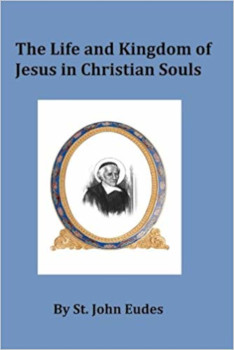
The Life and Kingdom of Jesus in Christian Souls
By St. John Eudes
$17.95
Authored by Saint John Eudes, Introduction by Fulton J Sheen According to the Roman Breviary, Saint John Eudes is the author of devotion to both the Sacred Heart of Jesus and the Immaculate Heart of Mary. His two works on these two devotions are classics. However, he is also a master to the spiritual life; an unknown master. Many are familiar with the works of Saint Bonaventure, Saint Alphonsus Ligouri and Saint Louis de Montfort to name just three of the masters of the spiritual life. And yet, Saint John Eudes has a lot to contribute.
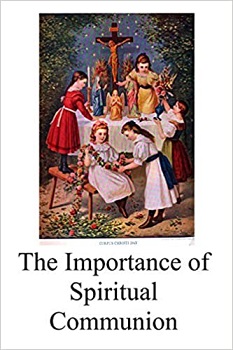
The Importance of Spiritual Communion
Kindle $2.99 / Paperback $5.99
If we cannot receive Holy Communion actually, then let us do so spiritually. These prayers and instructions have been gathered from the Saints and other venerated spiritual writers. Spiritual Communion has been a part of the spiritual life for decades. Growing up I was instructed to make a Spiritual Communion, when I could not go to Communion such as when I assisted at a second Mass. The same is true if one finds oneself at Mass, but not fasting. There are times coming, when it will be difficult, if not impossible to assist at the Holy Sacrifice of the Mass. We should be prepared for such times.
For More Good Traditional Catholic Books:

Crispy Roast Chicken

Ingredients
1 teaspoon kosher salt
1/2 teaspoon caraway seeds
1/2 teaspoon dried sage
1/4 teaspoon fennel seeds
1/4 teaspoon coriander seeds
1/4 teaspoon dried rosemary
2 tablespoons paprika
2 teaspoons garlic powder
2 teaspoons all-purpose flour
1 teaspoon onion powder
5 tablespoons vegetable oil
1 (4 pound) broiler-fryer chicken, cut in half lengthwise
Directions
In a spice grinder or mortar, combine kosher salt, caraway seeds, sage, fennel, coriander, and rosemary. Grind to a coarse powder. Transfer spice mixture to a bowl and stir in paprika, garlic powder, flour, and onion powder; mix in vegetable oil to make a smooth paste.
Pat chicken halves dry with paper towels and tuck wing tips up behind the back. Brush spice paste onto chicken halves, coating both sides, taking care to season under wings and legs. Place chicken halves in baking dish or roasting pan with skin sides up, leaving space around chicken so halves aren't touching.
Roast in preheated oven until a thermometer inserted in a thigh reads 165 degrees F (74 degrees C), about 1 hour. Remove from oven and let rest for 10 minutes before slicing.
Roasted Pumpkin Seeds

1.5 cups raw whole pumpkin seeds
2 teaspoons butter, melted
1 pinch salt
Directions
Preheat oven to 300 degrees F (150 degrees C).
Toss seeds in a bowl with the melted butter and salt. Spread the seeds in a single layer on a baking sheet and bake for about 45 minutes or until golden brown; stir occasionally. Enjoy!
Video sermons and instructions: Timeless timely truths for living the Faith
Christ the King 2010
19th Sunday after Pentecost 2011
18th Sunday after Pentecost 2013
To God Be The Glory
Lamp & Light Bible Study - Matthew 12

Encouragement for Today
Therefore encourage one another and build one another up.... I Thessalonians 5:11
We believe that through our assorted podcasts, Vlogs, audio downloads and devotional blogs, you will find an assorted Treasure Chest of...
- Sermons
- Classic Catholic Audio Books.
- Devotionals
- Scripture Studies
- Catechism Lessons
- Old-Time Christian radio programs
- Catholic Videos
...that will be a help in your faithful walk with the Lord.
LEARN MORE AT THE ENCOURAGEMENT FOR TODAY WEBSITE: https://www.encouragementfortoday.com
Truths From Genesis
Where Does A Week Come From?
In Exodus 20:11 we read, “For in six days the Lord made the heavens and the earth, the sea, and all that is in them, but he rested on the seventh day. Therefore the Lord blessed the Sabbath day and made it holy.” Verse 11 is part of the 3rd commandment which tells us that because God worked for six days in creating the world and rested for one day, so we should copy this pattern and work for six days and rest for one.
We all use a seven-day week! And the Church set one of these seven days aside as a special rest day to think about God.
The Catechism of the Counsel of Trent says this concerning the Sabbath:
“The Apostles therefore resolved to consecrate the first day of the week to the divine worship, and called it the Lord's day. St. John in the Apocalypse makes mention of the Lord's day; and the Apostle commands collections to be made on the first day of the week, that is, according to the interpretation of St. Chrysostom, on the Lord's day. From all this we learn that even then the Lord's day was kept holy in the Church.” The Catechism continues, “The Church of God has thought it well to transfer the celebration and observance of the Sabbath to Sunday.
For, as on that day light first shone on the world, so by the Resurrection of our Redeemer on the same day, by whom was thrown open to us the gate to eternal life, we were called out of darkness into light; and hence the Apostles would have it called the Lord's day.
We also learn from the Sacred Scriptures that the first day of the week was held sacred because on that day the work of creation commenced, and on that day the Holy Ghost was given to the Apostles.”
We go to Church to and worship our Creator. It is a special day set aside for Him. It's also interestingf to note that the only place the seven-day week comes from is the Bible! It's not based on any astronomical observation, but based on the fact that God created everything in six days and rested for one.
Consider:
Where does our day of approximately 24 hours come from? This is the time it takes the earth to rotate on its axis.
Where does a year com from? This is the time it takes for the earth to go around the sun.
Where does a month come from? This has to do with the relationship between the earth and the moon.
Where does a seven-day week come from? Nowhere-except the Bible! The fact that we use a seven-day week is actually confirming the truth of the Bible.
Now if God made everything in six million years and rested for one million years, we would have a very long week and that wouldn't make sense. It only makes sense if God really did make the universe in six ordinary days and rested for one ordinary day.

Catechism Catch-Up
Learning How To Walk In The Fear The Lord

The fear of the Lord is an awareness that you are in the presence of a holy, just, and almighty God and that He will hold you accountable for your motives, thoughts, words, and actions. To fear God is to desire to live in harmony with His righteous standards and to honor Him in all that you do.
We do not naturally seek to honor God, because our sinful natures lead us to pursue selfish pleasures instead of delighting in God and discovering the joy of knowing and loving Him. We must choose to walk in the fear of the Lord. The psalmist David prayed, “Teach me thy way, O Lord; I will walk in thy truth: unite my heart to fear thy name” (Psalm 86:11).
Throughout the Bible, many promises are given to those who fear the Lord, such as Proverbs 22:4: “The fruit of humility is the fear of the Lord, riches and glory and life.” It is wise to be governed by a healthy fear of God!
The following disciplines will help you comprehend more of His greatness and more of your dependence on Him, thereby learning the fear of the Lord.
Consider God’s Creation
When we look around at God’s creation—the majesty of towering mountains, the expanse of oceans with their high tides and low tides, the intricacy of delicate flowers, the brilliance of the sun, and the glory of our galaxy—we can catch a glimpse of how awesome our God is!
-
The psalmist David often expressed his awe of God by meditating on God’s handiwork. He wrote, “When I consider thy heavens, the work of thy fingers, the moon and the stars, which thou hast ordained; what is man, that thou art mindful of him?” (Psalm 8:3–4).
-
When God gave His Law to the nation of Israel, He first revealed His mighty power through nature so that the people would learn to fear Him. "And all the people saw the thunderings, and the lightnings, and the sound of the trumpet, and the mount smoking: and being terrified and struck with fear, they stood afar off, Saying to Moses: Speak thou to us, and we will hear: let not the Lord speak to us, lest we die. And Moses said to the people: Fear not: for God is come to prove you, and that the dread of him might be in you, and you should not sin.” (Exodus 20:18–20).
-
The Apostle Paul also recognized that God reveals His power to mankind through His creation. “. . . Because that which is known of God is manifest in them. For God hath manifested it unto them. For the invisible things of him, from the creation of the world, are clearly seen, being understood by the things that are made; his eternal power also, and divinity: so that they are inexcusable.” (Romans 1:19–20).
Respect God’s Word
Saint Hilary, from his treatise on the psalms, said this:
"For us the fear of God consists wholly in love, and perfect love of God brings our fear of him to its perfection. Our love for God is entrusted with its own responsibility: to observe his counsels, to obey his laws, to trust his promises. Let us hear what Scripture says: And now, Israel, what does the Lord your God ask of you except to fear the Lord your God and walk in his ways and love him and keep his commandments with your whole heart and your whole soul, so that it may be well for you?
The ways of the Lord are many, though he is himself the way. When he speaks of himself he calls himself the way and shows us the reason why he called himself the way: No one can come to the Father except through me.
We must ask for these many ways, we must travel along these many ways, to find the one that is good. That is, we shall find the one way of eternal life through the guidance of many teachers. These ways are found in the law, in the prophets, in the gospels, in the writings of the apostles, in the different good works by which we fulfill the commandments. Blessed are those who walk these ways in the fear of the Lord."
Having a high regard for the Bible, the written Word of God, is an essential part of growing in the fear of the Lord. When we take time to read the scriptures, listen to it being proclaimed to us and commit to applying its universal, non-optional truths, we learn more about the nature of God, His ways, and our role as His creatures.
-
All the people of Israel were to gather to hear the Word of God so that they would learn to fear Him. “And the people being all assembled together, both men and women, children and strangers, that are within thy gates: that hearing they may learn, and fear the Lord your God, and keep, and fulfill all the words of this law: That their children also, who now are ignorant, may hear, and fear the Lord their God, all the days that they live in the land whither you are going over the Jordan to possess it.” (Deuteronomy 31:12–13). (See also Deuteronomy 4:10, 6:24, and 8:6.)
-
The kings of Israel were required to write out a copy of God’s Law and to spend time each day reading it so they would learn to fear God. “Thou shalt set him whom the Lord thy God shall choose out of the number of thy brethren. Thou mayst not make a man of another nation king, that is not thy brother. And when he is made king, he shall not multiply horses to himself, nor lead back the people into Egypt, being lifted up with the number of his horsemen, especially since the Lord hath commanded you to return no more the same way. He shall not have many wives, that may allure his mind, nor immense sums of silver and gold. But after he is raised to the throne of his kingdom, he shall copy out to himself the Deuteronomy of this law in a volume, taking the copy of the priests of the Levitical tribe, And he shall have it with him, and shall read it all the days of his life, that he may learn to fear the Lord his God, and keep his words and ceremonies, that are commanded in the law;” (Deuteronomy 17:15–19).
-
Today, Christians are “kings and priests unto God” (Revelation 1:6). We are to understand the worth of Scripture and to study it and apply it to our lives. “All scripture, inspired of God, is profitable to teach, to reprove, to correct, to instruct in justice, That the man of God may be perfect, furnished to every good work” (II Timothy 3:16–17).
Learn From Scriptural Examples
God’s glory and holiness call for our worship and submission. When the Saints encountered God, they instinctively demonstrated a deep reverence for Him. We can learn from these examples in our quest to fear God as we should.
The thought of God’s judgments on sin should strike fear into every heart:
-
David used strong language to describe God’s judgments. “Thy fierce wrath goeth over me; thy terrors have cut me off” (Psalm 88:16).
-
The Apostle Paul spoke of God’s judgment as a motivation to preach the Gospel. “For we must all be manifested before the judgement seat of Christ, that every one may receive the proper things of the body, according as he hath done, whether it be good or evil. Knowing therefore the fear of the Lord, we use persuasion to men. . .” (II Corinthians 5:10–11).
Supernatural demonstrations of God’s power often left people trembling with fear:
-
The Babylonian King Belshazzar threw a party and served his guests with the gold and silver vessels from the Temple in Jerusalem, but he soon received a message of warning from God: “In the same hour there appeared fingers, as it were of the hand of a man, writing over against the candlestick upon the surface of the wall of the king's palace: and the king beheld the joints of the hand that wrote. Then was the king's countenance changed, and his thoughts troubled him: and the joints of his loins were loosed, and his knees struck one against the other.” (Daniel 5:5–6).
-
On the morning of Jesus’ resurrection, an angel appeared and rolled back the stone from the door of the tomb: “And his countenance was as lightning, and his raiment as snow. And for fear of him, the guards were struck with terror, and became as dead men.” (Matthew 28:3–4).
When Godly men of the Old and New Testaments heard God’s voice and saw His glory, they were filled with the fear of the Lord:
-
The prophet Isaiah responded with fear when He saw a vision of God in the temple. “And I said: Woe is me, because I have held my peace; because I am a man of unclean lips, and I dwell in the midst of a people that hath unclean lips, and I have seen with my eyes the King the Lord of hosts.” (Isaiah 6:5).
-
When the prophet Daniel saw a vision, he testified that he had no strength and fell down prostrate: “And I being left alone saw this great vision: and there remained no strength in me, and the appearance of my countenance was changed in me, and I fainted away, and retained no strength. And I heard the voice of his words: and when I heard, I lay in a consternation, upon my face, and my face was close to the ground. And behold a hand touched me, and lifted me up upon my knees, and upon the joints of my hands. And he said to me: Daniel, thou man of desires, understand the words that I speak to thee, and stand upright: for I am sent now to thee. And when he had said this word to me, I stood trembling.” (Daniel 10:8–11).
-
At the time of the Apostle Paul’s conversion, he was astonished at Christ’s message to him on the road to Damascus. The revelation of God’s reality and glory overcame all previous misconceptions about Jesus’ identity: “Who said: Who art thou, Lord? And he: I am Jesus whom thou persecutest. It is hard for thee to kick against the goad. And he trembling and astonished, said: Lord, what wilt thou have me to do?. . .” (Acts 9:5–6).
-
When the Apostle John received the revelation about the end of the world and saw Jesus on the Isle of Patmos, he was filled with the holy fear of God: “And I turned to see the voice that spake with me. . . . And when I saw him, I fell at his feet as dead. And he laid his right hand upon me, saying unto me, Fear not . . .” (Revelation 1:12, 17).
When we encounter a power that is far greater that we are, we often respond with fear. This response was demonstrated by people who witnessed the supernatural power of Jesus Christ:
-
The disciples were afraid when Jesus stilled the storm: “And they feared exceedingly, and said one to another, What manner of man is this, that even the wind and the sea obey him?” (Mark 4:41).
-
When Jesus cured a man possessed by many demons, the people feared Him: “And all the multitude of the country of the Gerasens besought him to depart from them; for they were taken with great fear. . . .” (Luke 8:37).
-
Jesus’ disciples were frightened when He appeared to them after His resurrection: “Now whilst they were speaking these things, Jesus stood in the midst of them, and saith to them: Peace be to you; it is I, fear not. But they being troubled and frightened, supposed that they saw a spirit.” (Luke 24:36–37).
Welcome God’s Chastening
When we rebel against God’s holiness, we will surely face consequences. God’s chastening of sin is painful, yet it is the expression of a loving Father’s care for His children.
-
Scripture instructs us to embrace God’s discipline and learn from the reproofs of life: “My son, reject not the correction of the Lord: and do not faint when thou art chastised by him: For whom the Lord loveth, he chastiseth:and as a father in the son he pleaseth himself.” (Proverbs 3:11–12).
-
The Body of Christ is challenged to receive God’s chastening and become more holy: “Persevere under discipline. God dealeth with you as with his sons; for what son is there, whom the father doth not correct? . . .Moreover we have had fathers of our flesh, for instructors, and we reverenced them: shall we not much more obey the Father of spirits, and live? And they indeed for a few days, according to their own pleasure, instructed us: but he, for our profit, that we might receive his sanctification. Now all chastisement for the present indeed seemeth not to bring with it joy, but sorrow: but afterwards it will yield, to them that are exercised by it, the most peaceable fruit of justice.” (Hebrews 12:7, 9–11).
-
David expressed the pain of past failure in Psalm 51 and humbly sought God’s mercy and cleansing: “Against thee, thee only, have I sinned, and done this evil in thy sight: that thou mightest be justified when thou speakest, and be clear when thou judgest. . . . Purge me with hyssop, and I shall be clean: wash me, and I shall be whiter than snow. . . . Create in me a clean heart, O God: and renew a right spirit within me” (Psalm 51:4–10).
Recall the Chief Duty of Man
Israel’s King Solomon is renowned as the wisest man who ever lived, yet he made serious mistakes. Solomon forsook the fear God. Even though he received tremendous blessings from God, he disobeyed God’s Law in numerous ways and eventually worshiped false gods. God held Solomon responsible for these sins and brought judgment to the nation of Israel and to Solomon’s family because of them. (See Deuteronomy 17:14–17, I Kings 4:26, and I Kings 11:1–13.)
In the Book of Ecclesiastes, Solomon records his observations about the meaning of life. In the end, he states that the “conclusion of the whole matter” is the fear of the Lord. Let’s heed these words of warning from a man who knew the justice and judgment of God!
“Let us all hear together the conclusion of the discourse. Fear God, and keep his commandments: for this is all man: And all things that are done, God will bring into judgment for every error, whether it be good or evil.” (Ecclesiastes 12:13–14).
READ MORE FROM THE TRADITIONAL CATECHISM AT THE WEBSITE: https://www.traditionalcatechism.com
Living Catholic:
Some Of God’s Purposes For Allowing Adversity In Our Life

James the Apostle recommended a surprising response to troubles: “My brethren, count it all joy, when you shall fall into divers temptations; Knowing that the trying of your faith worketh patience. And patience hath a perfect work; that you may be perfect and entire, failing in nothing.” (James 1:2–4).
The Apostle Paul expressed a similar perspective on adversity: “And not only so; but we glory also in tribulations, knowing that tribulation worketh patience; And patience trial; and trial hope; And hope confoundeth not: because the charity of God is poured forth in our hearts, by the Holy Ghost, who is given to us. For why did Christ, when as yet we were weak, according to the time, die for the ungodly?” (Romans 5:3–6).
These Saints understood that in light of what Christ did for us by providing salvation, the difficulties we experience in this life take on new meaning. They are a means through which God works to accomplish His will in our lives: to shape us so that we reflect the character of Christ. (See Romans 8:28–30.) On the basis of this purpose, all adversity “works together” for our good and God’s glory.
Adversity gets our attention.
When adversity comes, we are forced to face problems and pressures that are too big for us to resolve. In this way, God gets our attention. We can’t continue to pursue our goals, tasks, and relationships in the same manner. We have to stop and evaluate our situation, ask God for wisdom, obey His Word, and trust Him to bring the help we need.
Troubles point out our weaknesses and prompt us to rely on God in ways that we wouldn’t unless we had significant needs. Christ’s invitation to those who are weary becomes very attractive in the midst of trials: “Come to me, all you that labour, and are burdened, and I will refresh you. Take up my yoke upon you, and learn of me, because I am meek, and humble of heart: and you shall find rest to your souls. For my yoke is sweet and my burden light.” (Matthew 11:28–30). Adversity is a classroom in which we can learn more of Christ and become more like Him.
As we come to God with our needs, our inward prayer should echo these words of the Psalmist: “To thee, O Lord, have I lifted up my soul.
O my God, I trust in thee: In thee, O my God, I put my trust; let me not be ashamed. ” (Psalm 25:1–2).
Adversity reminds us of our weaknesses.
The Apostle Paul knew what it meant to live with adversity that would not go away. He learned to see the good that God intended to bring to his life through it and to rejoice in God’s design. He wrote: “And lest the greatness of the revelations should exalt me, there was given me a sting of my flesh, an angel of Satan, to buffet me. For which thing thrice I besought the Lord, that it might depart from me. And he said to me: My grace is sufficient for thee; for power is made perfect in infirmity. Gladly therefore will I glory in my infirmities, that the power of Christ may dwell in me. Therefore I take pleasure in infirmities, in reproaches, in necessities, in persecutions, in distresses for Christ’s sake: For when I am weak, then am I powerful.” (II Corinthians 12:7–10).
As we accept the unchangeable and embrace God’s purposes for our difficulties, we will experience the power of Christ in our lives. We can trust God to care for us and to provide all that we need. “As a father hath compassion on his children, so hath the Lord compassion on them that fear him:. For he knoweth our frame. He remembereth that we are dust ” (Psalm 103:13–14).
Adversity motivates us to cry out to God.
God responds to the cry of His children when they suffer. “The righteous cried, and the Lord heard them: and delivered them out of all their troubles. ” (Psalm 34:17).
-
We are to cry out to God with our voice. “I have cried to the Lord with my voice: and he hath heard me from his holy hill ” (Psalm 3:4).
-
We can cry out to God for mercy each day. “Have mercy on me, O Lord, for I have cried to thee all the day.” (Psalm 86:3).
-
We are to cry out to God in humility. “. . . He forgetteth not the cry of the humble” (Psalm 9:12).
-
We are to cry out to God with a pure heart. “If I have looked at iniquity in my heart, the Lord will not hear me." (Psalm 66:18).
Adversity is an assurance of God’s fatherly love and care.
Wise discipline brings a child to maturity. Just as a loving father helps his children learn and grow through the discipline he carries out in their lives, so God uses adversity to help us grow in holiness and become more like Him. When we persevere through hardship, we have proof that we are God’s children.
"For whom the Lord loveth, he chastiseth; and he scourgeth every son whom he receiveth. Persevere under discipline. God dealeth with you as with his sons; for what son is there, whom the father doth not correct? But if you be without chastisement, whereof all are made partakers, then are you bastards, and not sons. Moreover we have had fathers of our flesh, for instructors, and we reverenced them: shall we not much more obey the Father of spirits, and live? And they indeed for a few days, according to their own pleasure, instructed us: but he, for our profit, that we might receive his sanctification. Now all chastisement for the present indeed seemeth not to bring with it joy, but sorrow: but afterwards it will yield, to them that are exercised by it, the most peaceable fruit of justice. Wherefore lift up the hands which hang down, and the feeble knees, And make straight steps with your feet: that no one, halting, may go out of the way; but rather be healed." (Hebrews 12:6–13).
Adversity motivates us to fear the Lord.
Adversity reminds us that God is present and we are accountable to Him for our every thought, word, and action. God’s Word reveals that the fear of the Lord is the key to life, wisdom, and lasting achievement. (See Proverbs 9:10, 14:27, and 22:4.)
If we lose our awareness of God and begin to think and act as if He does not exist, God often allows painful reminders of our need for Him, just as He did with the nation of Israel. “And the wrath of the Lord was kindled against Israel, and he said: Behold this nation hath made void my covenant, which I had made with their fathers, and hath despised to hearken to my voice: I also will not destroy the nations which Josue left, when he died: That through them I may try Israel, whether they will keep the way of the Lord, and walk in it, as their fathers kept it, or not.” (Judges 2:20–22).
Adversity strengthens our hatred for sin.
The pain of adversity helps us recognize the deception of sin. Our hatred of evil will increase when we realize how sin keeps us from living in a way that honors God and how it damages the lives of those we love.
God wants us to know that He will not ignore sin. “. . . God is not mocked. For what things a man shall sow, those also shall he reap. For he that soweth in his flesh, of the flesh also shall reap corruption. But he that soweth in the spirit, of the spirit shall reap life everlasting.” (Galatians 6:7–8).
If we could only perceive the final cost of our sin, we would shrink from committing it. Therefore, in His mercy God exposes secret sin, and He allows others to see its devastating consequences. In this way, we are warned not to be fooled by “. . . the pleasures of sin,” which last for a season. (See Hebrews 11:25.)
Adversity is a call for self-examination.
The discipline of the Lord is a part of the life of every Christian, and adversity should motivate us to examine our lives and discern if we are disobeying God’s Word in any area. Jesus warned the complacent church of Laodicea, “Such as I love, I rebuke and chastise. Be zealous therefore, and do penance.” (Revelation 3:19).
God’s Word should be our guide in self-examination. Many cause-and-effect sequences are recorded in Scripture for our instruction and warning. When we experience specific difficulties in our lives, we should discern if they are consequences of sin. The following verses are examples of the connection between our actions and the circumstances in our lives:
-
“He that hideth his sins, shall not prosper: but he that shall confess, and forsake them, shall obtain mercy.” (Proverbs 28:13).
-
“He that rendereth evil for good, evil shall not depart from his house.” (Proverbs 17:13).
-
“Pride goeth before destruction: and the spirit is lifted up before a fall.” (Proverbs 16:18).
-
“Honour thy father and thy mother, which is the first commandment with a promise: That it may be well with thee, and thou mayest be long lived upon earth” (Ephesians 6:2–3).
The observance of the Lord’s Supper is a time when God calls us to self-examination. As we regularly remember Jesus’ sacrifice, we are to seriously consider our behavior in light of God’s Word. “But let a man prove himself: and so let him eat of that bread, and drink of the chalice. For he that eateth and drinketh unworthily, eateth and drinketh judgment to himself, not discerning the body of the Lord. Therefore are there many infirm and weak among you, and many sleep.” (I Corinthians 11:28–30).
Adversity exposes pride.
The sin of pride is the source of many difficulties, as the following Scriptures point out:
-
“Among the proud there are always contentions:. . . .” (Proverbs 13:10).
-
“Where pride is, there also shall be reproach: but where humility is, there also is wisdom.” (Proverbs 11:2).
-
“Humiliation followeth the proud: and glory shall uphold the humble of spirit.” (Proverbs 29:23).
-
“Because every one that exalteth himself, shall be humbled; and he that humbleth himself, shall be exalted. ” (Luke 14:11).
God detests pride, but humility prompts the gift of His grace. “. . . God resisteth the proud, and giveth grace to the humble. Be subject therefore to God, but resist the devil, and he will fly from you.” (James 4:6–7). Hard times expose our pride, because they highlight our need for God and for others. In the midst of adversity, seek to grow in humility, and receive God’s grace with gratitude.
Adversity is evidence of spiritual warfare.
A Christian must be aware of the spiritual battle that rages between God and the enemy, Satan. Learn to recognize that sometimes adversity comes in the form of spiritual warfare through weariness, confusion, division, and spiritual oppression.
In the midst of these trials, do not become overwhelmed or yield to the temptation to give up. The Apostle Paul encourages us to be strong, courageous, and prepared to be good soldiers: “Put you on the armour of God, that you may be able to stand against the deceits of the devil. For our wrestling is not against flesh and blood; but against principalities and power, against the rulers of the world of this darkness, against the spirits of wickedness in the high places. Therefore take unto you the armour of God, that you may be able to resist in the evil day, and to stand in all things perfect. Stand therefore, having your loins girt about with truth, and having on the breastplate of justice, And your feet shod with the preparation of the gospel of peace: In all things taking the shield of faith, wherewith you may be able to extinguish all the fiery darts of the most wicked one. And take unto you the helmet of salvation, and the sword of the Spirit (which is the word of God). By all prayer and supplication praying at all times in the spirit; and in the same watching with all instance and supplication for all the saints:” (Ephesians 6:11–18).
Adversity is God’s method of purifying our faith.
Faith is essential for living the Christian life, because the ways of God are opposite to the natural inclinations of man. Thus, adversity may come at the hand of those who mock God’s principles, or it may come when we violate God’s principles. In either case, adversity is designed to strengthen our faith.
“. . . now you must be for a little time made sorrowful in divers temptations:
That the trial of your faith (much more precious than gold which is tried by the fire) may be found unto praise and glory and honour at the appearing of Jesus Christ:” (I Peter 1:6–7).
The development of patience is another benefit of having our faith purified by the fire of adversity. “. . . The trying of your faith worketh patience” (James 1:3). It is through faith and patience that we inherit the promises of God. Be “. . . followers of them, who through faith and patience shall inherit the promises.” (Hebrews 6:12).
Adversity is a reminder to pray for our authorities.
Those who are in positions of responsibility are supposed to provide protection for those under their care. When there are failures in the life of a leader, his “umbrella of protection” weakens, and those who are under that authority become more vulnerable to the attacks of the enemy. As we experience the pressures of temptation, we should realize that those who are in authority over us are also undergoing temptations and are in need of our intercessory prayer.
The Apostle Paul wrote that we should intercede for those in authority over us so that we can lead a quiet and peaceful life: “I desire therefore, first of all, that supplications, prayers, intercessions, and thanksgivings be made for all men: For kings, and for all that are in high station: that we may lead a quiet and a peaceable life in all piety and chastity.” (I Timothy 2:1–2).
Adversity is a signal to reevaluate priorities.
In troubled times, we need to consider our priorities and discern if we are spending enough time preserving the most important aspects of our lives: our relationships with God and others. We should regularly evaluate the health of our relationships and invest the time and effort needed to maintain them honorably.
When we do not spend time with God, memorizing and meditating on His Word, and praying, we miss out on one of the important means God uses to give us wisdom and to change our hearts. We also rob others of the spiritual encouragement, direction, and testimonies we could share if we were faithfully spending time with God.
Adversity that comes because of having wrong priorities may be the consequence of trying to do more than God intended for us to do. “It is vain for you to rise before light, rise ye after you have sitten, you that eat the bread of sorrow. When he shall give sleep to his beloved,” (Psalm 127:2). If we have more projects than we can manage to do in six days, we have undertaken more work than God intended. “Six days shalt thou labour, and shalt do all thy works.” (Exodus 20:9).
Adversity reveals if our work will last.
How we weather the storms of life shows what we have built our lives on. Jesus gave this example: “Every one therefore that heareth these my words, and doth them, shall be likened to a wise man that built his house upon a rock, And the rain fell, and the floods came, and the winds blew, and they beat upon that house, and it fell not, for it was founded on a rock. And every one that heareth these my words, and doth them not, shall be like a foolish man that built his house upon the sand, And the rain fell, and the floods came, and the winds blew, and they beat upon that house, and it fell, and great was the fall thereof.” (Matthew 7:24–27).
Adversity tests our friendships.
The strain of adversity impacts relationships. Hard times reveal if people want to get or to give. Fair-weather friends won’t endure the test of trials and difficulties, but true friends will remain to offer support, comfort, and encouragement in the midst of challenges. Proverbs 17:17 states, “He that is a friend loveth at all times: and a brother is proved in distress.”
True, lasting friendship is described in the Biblical account of David and Jonathan. “The soul of Jonathan was knit with the soul of David, and Jonathan loved him as his own soul.” (I Samuel 18:1). When adversity shook David’s world, Jonathan could have rejected David for many reasons. Instead, he remained a faithful friend to David until the end of his life. Jonathan befriended, encouraged, warned, and protected David, accepting him as the one who would be the king of Israel in his place. When Jonathan died, David was deeply grieved. “I grieve for thee, my brother Jonathan: exceeding beautiful, and amiable to me above the love of women. As the mother loveth her only son, so did I love thee.” (II Samuel 1:26).
Adversity invites us to experience the power of God.
One of the ultimate purposes of adversity is to cause us to desire more of Christ’s power in our lives. Troubles reveal that on our own we can’t live in a way that honors God. We need to rely on God and receive His grace.
Paul willingly suffered the loss of all things so that he might gain more of Christ and experience the power of Christ’s resurrection. He said: “Furthermore I count all things to be but loss for the excellent knowledge of Jesus Christ my Lord; for whom I have suffered the loss of all things, and count them but as dung, that I may gain Christ: And may be found in him, not having my justice, which is of the law, but that which is of the faith of Christ Jesus, which is of God, justice in faith: That I may know him, and the power of his resurrection, and the fellowship of his sufferings, being made conformable to his death,” (Philippians 3:8–10).
God works within the Christian in a mighty way, making him dead to sin and alive in Christ and enabling him to walk in the power of the Holy Spirit rather than according to fleshly desires. (See Romans 6–8.) For the church of Ephesus, Paul prayed “That the God of our Lord Jesus Christ, the Father of glory, may give unto you the spirit of wisdom and of revelation, in the knowledge of him: The eyes of your heart enlightened, that you may know what the riches is of the glory of his inheritance in the saints. And what is the exceeding greatness of his power towards us, who believe according to the operation of the might of his power, Which he wrought in Christ, raising him up from the dead, and setting him on his right hand in the heavenly places. Above all principality, and power, and virtue, and dominion, and every name that is named, not only in this world, but also in that which is to come. And he hath subjected all things under his feet, and hath made him head over all the church, Which is his body, and the fulness of him who is filled all in all.” (Ephesians 1:17–23).
Adversity prepares us to comfort others.
One of the most valuable results of adversity is that through it we receive God’s comfort, which we are then able to share with others who face similar troubles. “Blessed be the God and Father of our Lord Jesus Christ, the Father of mercies, and the God of all comfort. Who comforteth us in all our tribulation; that we also may be able to comfort them who are in all distress, by the exhortation wherewith we also are exhorted by God. For as the sufferings of Christ abound in us: so also by Christ doth our comfort abound.” (II Corinthians 1:3–5).
Suffering brings pain, but it is not an end in itself. “In all things we suffer tribulation, but are not distressed; we are straitened, but are not destitute; We suffer persecution, but are not forsaken; we are cast down, but we perish not: Always bearing about in our body the mortification of Jesus, that the life also of Jesus may be made manifest in our bodies.. . . . So then death worketh in us, but life in you. . . . . For which cause we faint not; but though our outward man is corrupted, yet the inward man is renewed day by day. ” (II Corinthians 4:8-10, 12, 16).
To Learn More Principles For Life Go To: Resources: Principles of Life

Enjoying the Olive Tree? Why not subscribe today? Click here to go to the FREE scubscription page!


- Please pray for the repose of the soul of the Holy Father, Pope Michael.
- Please pray for the success and growth of the new Chrysostom Bible Institute. Check out the wonderful work it is doing and see how you can get involved!
- Your prayers and support are asked in a special way for the newly established House of Prayer.
- Pray especially that the Holy Ghost inspires and helps us prepare spiritual manuals and days of recollection to make available to all.
- Keep in your prayers our Podcast Ministry, a new way to reach out in the missionary work of the Church! We ask for prayers for our other activities world wide. We have made good contacts in the Philippines and Japan and ask prayers that these contacts will bear much fruit for the salvation of souls.
- Be sure to keep St. Helen Catholic Mission in your prayers. Why not go on over to the site now and see what they have to offer and how you might be able to help!
- Also we ask you to keep in prayer our increasing missionary work in the United States and elsewhere.
- Pray for those outside the Church and those who do not know God, that they may see the light of grace and be led safely home to the refuge of the Holy Catholic Church.
- As always, we also ask that you pray for yourself! Never forget your own state of soul. God is calling you to His service in His love. We know that our Lord can count on you to answer.
- We are all praying especially for you, too. May you correspond with every grace of God!
- In what other needs or intentions may we pray for you? Let us know!
- Let us remember that the Church runs on prayer. Without your prayers, God will not work in hearts and souls to bring them to a knowledge of the truth. (I Timothy 2:4)


To Donate online go to:

To Donate by Mail:
Our address is
Vatican in Exile
423 NE Grattan ST
Topeka, Kansas 66616
Make Checks payable to:
Vatican in Exile





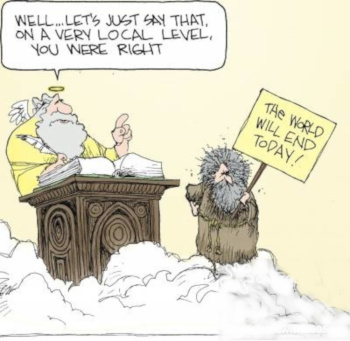

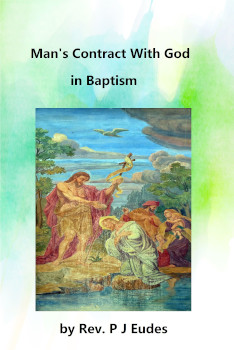









 Follow
Follow


